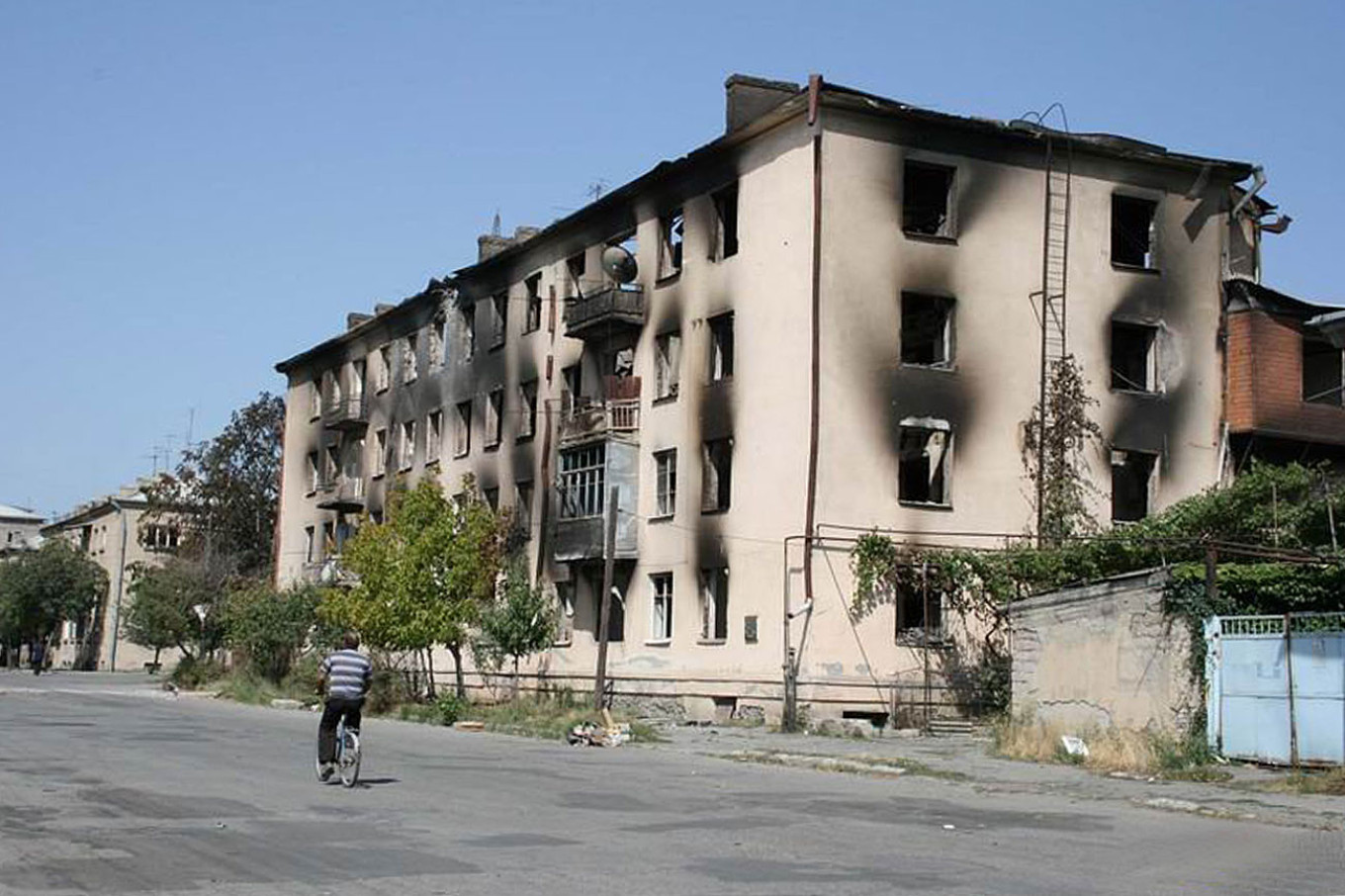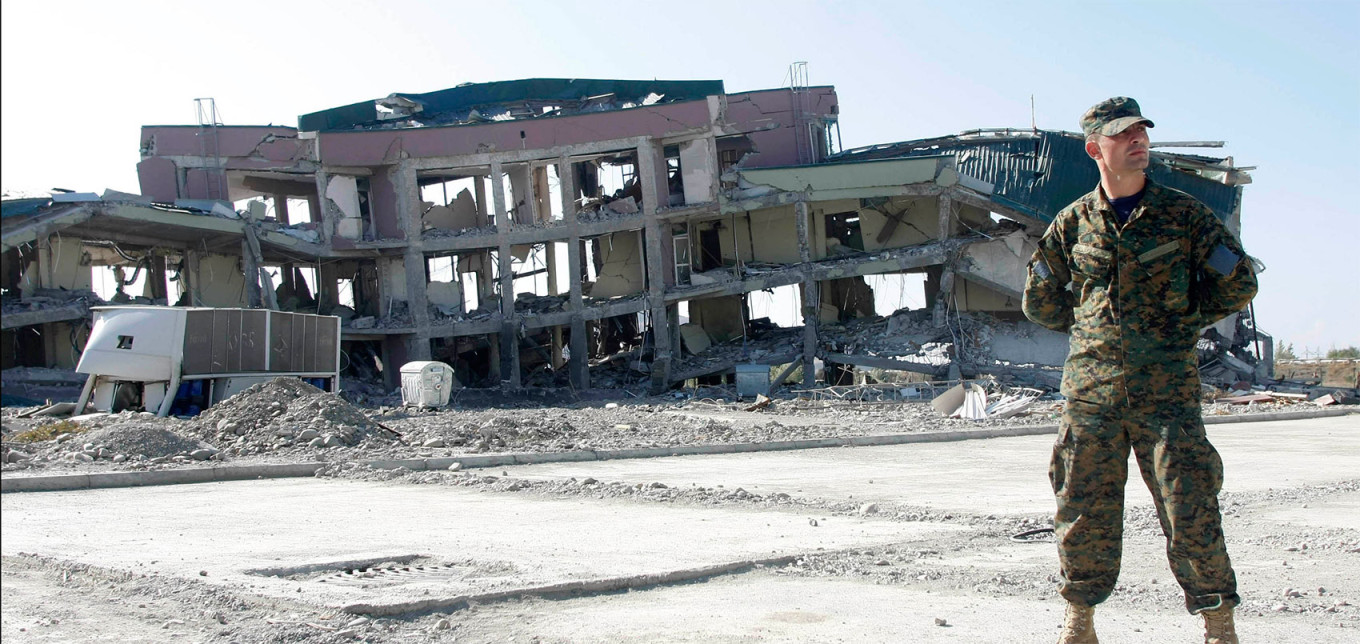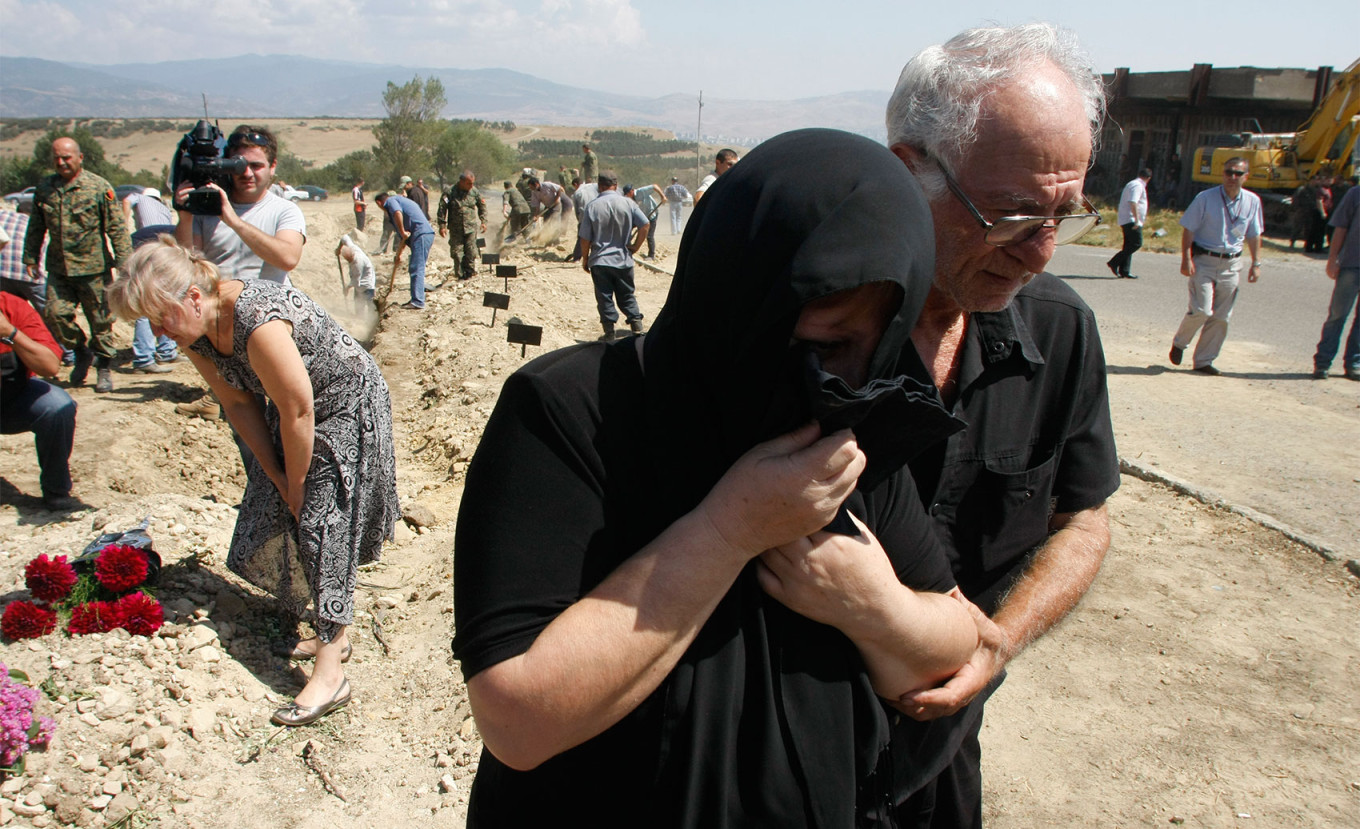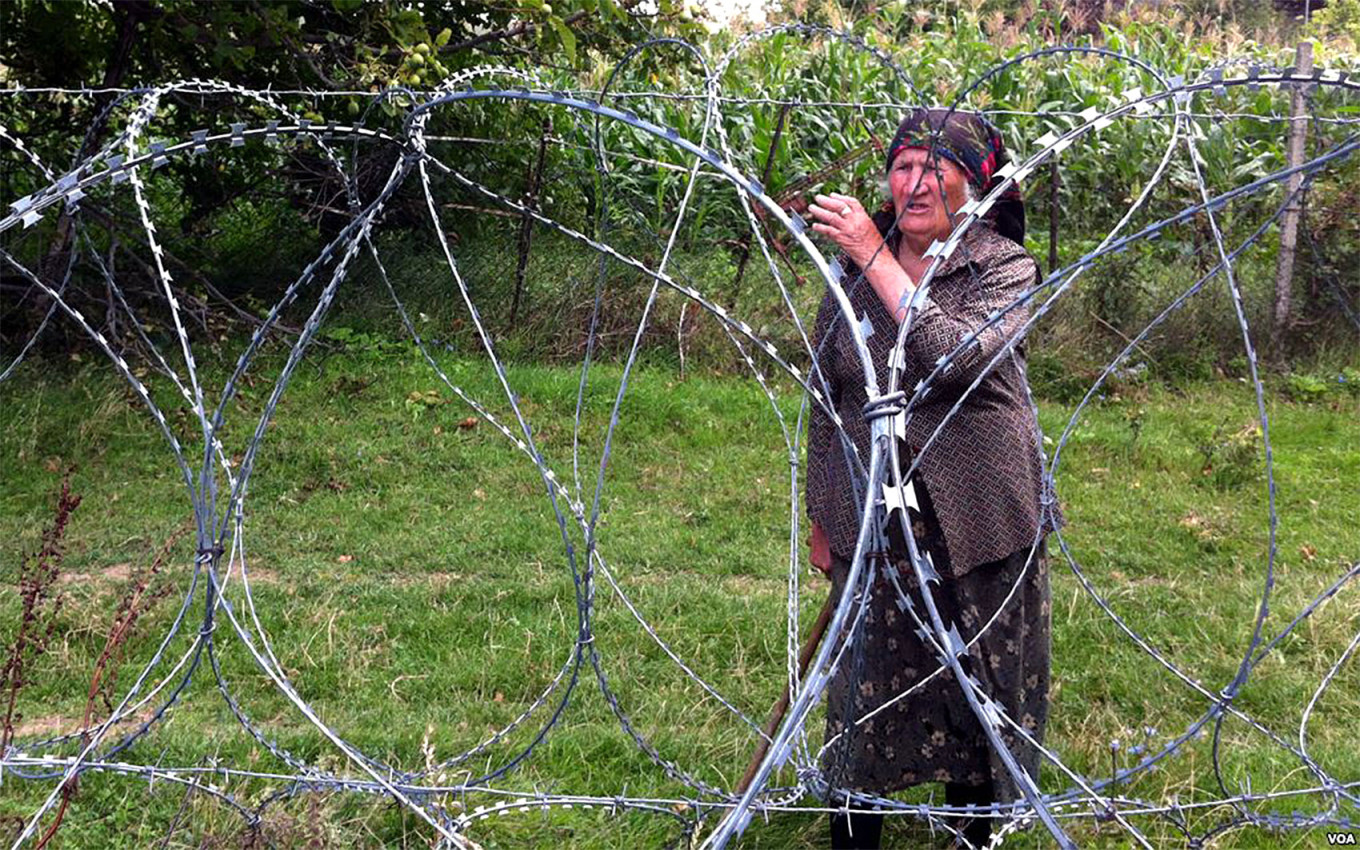TBILISI, Georgia — Nino Takaishvili, an ethnic Georgian from Moscow, clearly remembers Aug. 8, 2008, the day that the Russian army invaded her ancestral homeland while she was on her first trip abroad in Paris.
She also remembers the surprise she felt when her Russian-speaking guide began the tour with words that seemed to have been plucked from an alternate reality: “Dear friends, at this moment, as we are standing here, Georgia attacked Russia.”
Fifteen years since Russia’s five-day war against Georgia, most Russians living in this South Caucasus country still have a vague idea of what was happening here at that time, said Takaishvili, who left Russia for Georgia in 2021 out of disagreement with the Kremlin’s policies.
“Anti-war Russians … come to Tbilisi and are surprised when they are told that Russia has occupied 20% of Georgia,” Takaishvili said, referring to the breakaway statelets of South Ossetia and Abkhazia, which have hosted a Russian military contingent since the 2008 war.
But for many Russian emigres, their country’s invasion of Ukraine has brought the Russian war on Georgia, another former Soviet republic, into sharper focus.
The Russian army’s invasion of Georgia came hours after Georgian troops bombed and stormed the city of Tskhinvali, the capital of the separatist region of South Ossetia, on the night of Aug. 8, 2008.
The Georgian-Ossetian conflict had been frozen since 1992, when Russia supported the separatists and forced Georgia to enter truce negotiations with the self-proclaimed republic.

The crisis started to flare again following 2004 as Russian-Georgian relations cooled and Tbilisi turned toward the West. By July 2008, clashes and mutual shelling had become more frequent on the contact line, becoming the prelude of a new escalation.
Following the invasion, the Russian army drove the Georgian military out of Tskhinvali within a few days and captured several cities in Georgia, even coming close to Tbilisi before a peace agreement was signed on Aug. 12.
Georgia says 228 civilians were killed during the war, and 184 Georgian servicemen died or went missing.
Many of the tens of thousands of young anti-war Russians who moved to Georgia following the invasion of Ukraine had been children and teenagers at the time of the 2008 war.
Tatiana, an independent Russian journalist, admitted that she previously hadn’t had an interest in the Russian-Georgian war, but the invasion of Ukraine forced her to take a fresh look at the events.
“Since childhood, I thought it was a territorial conflict between Georgia and South Ossetia. I learned about Russia’s role in this war only after moving to Georgia,” said Tatiana, 26, who declined to share her surname.
Others admitted to The Moscow Times that they only remembered those events through the lens of the news on TV and their parents’ conversations.
“I was 10 years old and I didn’t realize at all that there was some kind of war,” recalled 25-year-old Maxim, who moved to Tbilisi last fall to flee Russia’s mobilization for the war in Ukraine.
“About [then-Georgian President Mikheil] Saakashvili, I have only heard that he is a criminal, a psycho and an instigator of wars. That’s what the adults told me. But I didn’t know why Saakashvili was bad and for what he was specifically to blame,” Maxim said.

Although the emigres who spoke to The Moscow Times admitted that they still know little about that war, they said they see clear similarities between the invasion of Georgia and the invasion of Ukraine.
“In my opinion, the invasion of Georgia was a manifestation of Russia’s colonial policy toward a neighboring state that does not agree to live by Russian rules,” said 26-year-old Mikita, an ethnic Ukrainian with a Russian passport who lives in Tbilisi.
Although he admitted that he did not know who exactly was responsible for the outbreak of hostilities, the events of February 2022 radicalized his attitude toward Russia and strengthened his sense of solidarity with Georgia.
“I do not know who started it first. It doesn’t matter to me. At any rate, Russia for me is now a terrorist state and a world-shattering evil that needs to be wiped off the face of the earth,” Mikita said.
According to an April 2023 survey conducted by the Washington-based think tank International Republican Institute, 37% of Georgians believe that Russians should not be allowed into Georgia until Russia leaves the occupied territories, and 29% would prefer that Russians leave their country.
Graffiti with the inscriptions “F*** Russia,” “Russians go home” and “Russian warship — go f*** yourself,” a common sight on Tbilisi’s historic streets, also speaks to the public mood here.
“During the first months in Georgia, I felt ashamed that I am from Russia,” said journalist Tatiana. “But I feel calmer now. Once at a bus stop in Tbilisi, we met some locals and after 10 minutes they invited us to drink wine. We drank to a free Georgia and a free Russia, hugged, and almost cried.”

However, most of the Russians who spoke to The Moscow Times admitted that they do not feel personally guilty for the events of 15 years ago.
“I could not influence these events as a child from a provincial small town. But, of course, few people [here] care. If you have a Russian passport, then you are responsible for everything that Russia has done,” 25-year-old Maxim said.
Gleb, a 26-year-old political science graduate student living in Tbilisi, said he thinks the “Russian occupation” narrative obscures other complex aspects of the conflict, such as Georgia’s responsibility for attempts to dominate its own ethnic minorities.
“Georgian society seems to be unable to reflect on the conflict with Ossetians and Abkhazians in isolation from Russian interference,” he said.
“The problem existed much earlier, they did not control these republics before Russia invaded Georgia. The question is, do Ossetians and Abkhazians consider themselves occupied?”

Russia managed to avoid serious diplomatic consequences over its war on Georgia despite the fact that Moscow’s actions were considered “incommensurable” in the West.
This was reinforced by an EU Commission investigation into the circumstances of the conflict, which blamed Georgia for the outbreak of hostilities but noted that the subsequent Russian invasion was a violation of international law.
Takaishvili said it is key to remember the Russo-Georgian war today given how it in many ways precluded the invasion of Ukraine.
“Everyone very quickly forgot about this war,” said Takaishvili. “What is happening now in Ukraine is a logical continuation of how the whole world turned a blind eye to what happened in Georgia. But I have never forgotten these days, I have never forgotten the horror I felt for my father and relatives in Georgia.”
“It’s strange that Russians only found out after the war in Ukraine that they are not loved here,” she said.